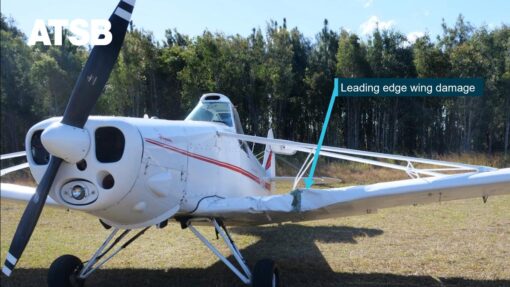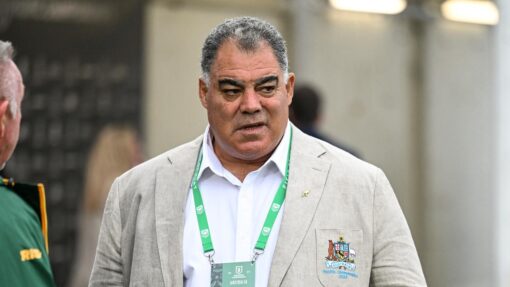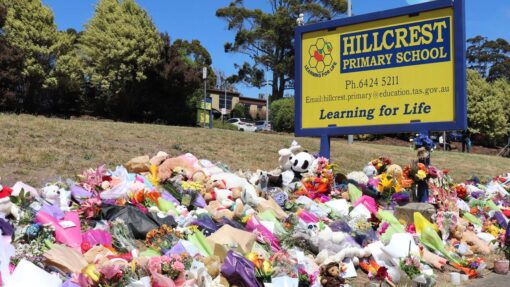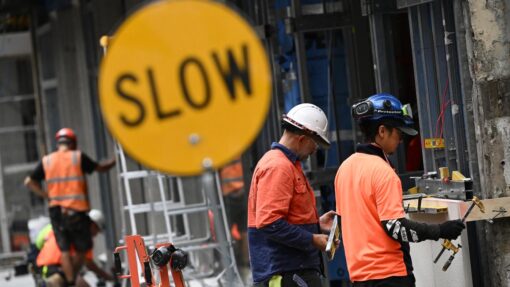Flying doctor spreads its wings to primary health care
Cassandra Morgan |

The scent of jet fuel hangs heavy in the air as weary doctors, psychiatrists and a physio all pile out of a small plane.
They stretch while setting foot on the Broken Hill tarmac, several hours since going out bush to be run ragged at fly-in, fly-out clinics.
There are smiles as Jackie Hanniver rolls over a trolley soon to be loaded with leftover medications, blood samples and equipment returned from the tiny towns of Wilcannia and Ivanhoe in western NSW.
The aircraft bears the wings of the Royal Flying Doctor Service, an image synonymous for many with its famed emergency retrievals.
Yet the outback clinics have become just as high a priority for the doctors despite a lack of funding to match, Ms Hanniver says.
“We’ve got the opportunity for a lot of growth within primary health,” the Broken Hill-based manager told AAP.
“There is still very much, from the government perspective, that focus on the emergency retrieval.
“We really want to start to be known as an integral piece of health within NSW.”
The service is working hard to draw focus to its primary health role in Australia’s remote and regional communities, as demand climbs for its fly-in clinics.
The clinics run out of its Broken Hill base are meant to deliver holistic health services to locals without forcing them to travel to cities, and the number of queuing patients has skyrocketed.

At Tibooburra in the state’s far northwest, flying doctors went from seeing two to 630 patients.
In the Bourke local government area, another 653 patients joined almost 900 already on the books.
The patient load in Packsaddle, about 220km north of Broken Hill, leapt from seven to 149 people, and at White Cliffs patient numbers rose almost almost 320 per cent to 716.
The increase in overall demand led to more frequent fly-in clinics in a number of communities including Tilpa in the Central Darling Shire, which was devastated by floods in late 2022.
In 2024, White Cliffs and Packsaddle are among the locations the Broken Hill-based doctors are visiting more frequently to meet demand.
Belinda Bennett is among many Royal Flying Doctor Service volunteer co-ordinators tasked with helping the fly-in clinics run smoothly, from taking appointments to organising food.
The service is integral in tiny communities like Tilpa, which was cut off for months because of the 2022 floods, Ms Bennett says.
Her own visit to the Tilpa clinic ultimately saved her life, leading to a bowel cancer diagnosis in 2011.
Ms Bennett was also a port of call for Tilpa friends and neighbours during the floods, as a member of the flying doctor service’s We’ve Got Your Back mental health program.
The flying doctor additionally employs up to 25 mental health professionals at its Broken Hill base alone.
“It takes a long time to recover from something like (the floods),” Ms Bennett said.
“There were people that had shearing sheds (above the floodwaters) … so they would go and live out there so they could still work.
“That means somebody’s staying home … it becomes very lonely.”
The service is expanding its fly-in clinic operation, offering it out of its Dubbo base since about 18 months ago.
It has since hired a second and third Dubbo-based nurse, along with a second doctor to fly out of the regional city.
The flying doctor also runs clinics in Queensland.
“Now (the flying doctor is) changing, getting that recognition from other stakeholders such as government about that specialist piece that we can provide (is important),” Ms Hanniver said.
“It would be nice to be used to our full potential.”

Broken Hill City Council has started work on $10 million in upgrades to the city’s airport, and is planning a further $15 million in runway upgrades.
The works could allow the flying doctor to have more planes on the airstrip at one time, to account for its expanding fly-in clinic service.
Deputy Mayor Jim Hickey said the upgrades would also be essential for fly-in fly-out workers, while Qantas confirmed it was in talks with the council about the airport upgrades allowing it to land larger passenger planes.
Currently, the airline can only land small aircraft at Broken Hill.
“It’s very exciting, it’s a major thing for Broken Hill,” he told AAP.
The federal government says while the Royal Flying Doctor Service plays a critical role in providing health services, the preference is for programs that facilitate regularised care as opposed to fly-in care.
The Commonwealth gave the service almost $482 million to fund its emergency retrievals and primary health care in 2022.
The flying doctor ran almost 4000 primary health clinics and 4500 emergency retrievals in 2022/23, and the government gave it another $29 million in the 2023/24 budget.
This AAP article was made possible with the support of the Meta Australian News Fund and The Walkley Foundation.
AAP


